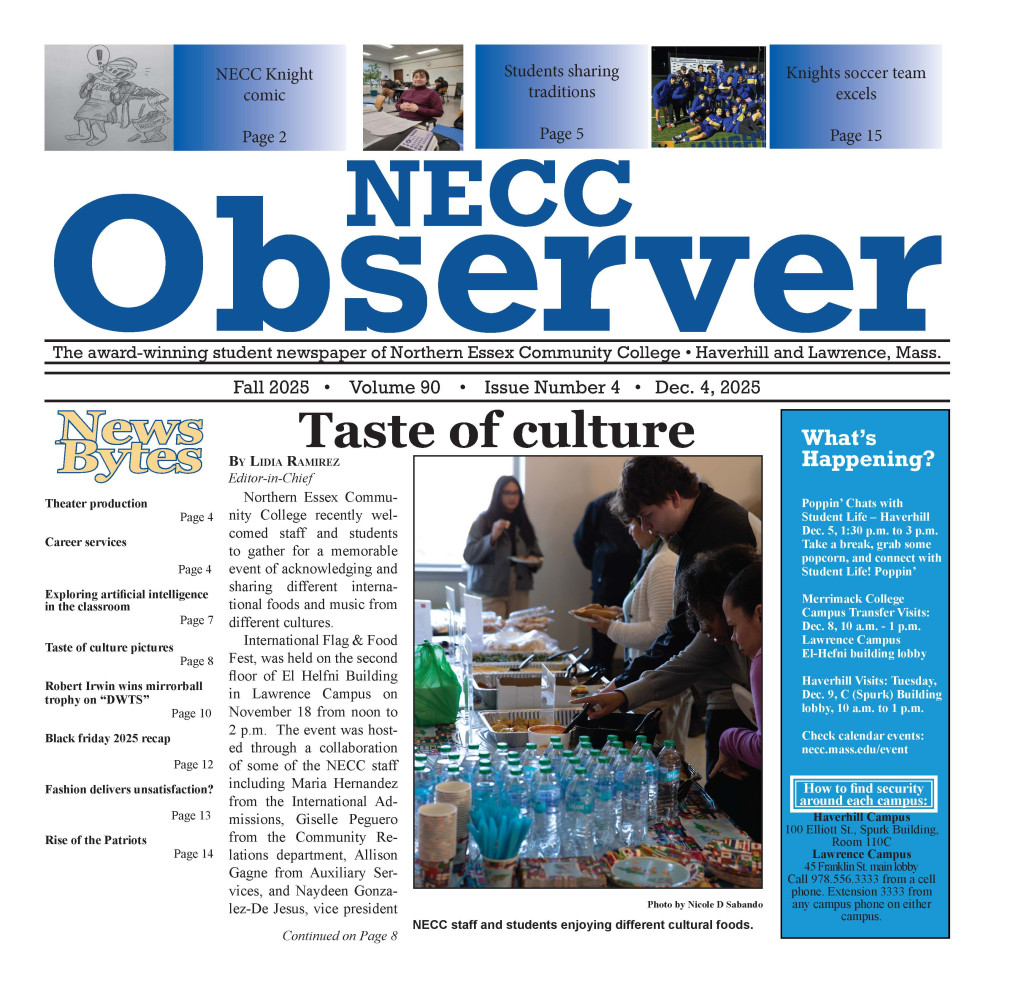My parents always told me when I was young that I would constantly change my mind about what I wanted to be.
One year, I wanted to be an actress. The next, I wanted to be a pastry chef. If the future Ashlee came to me and said I was going to be a journalist, I would laugh and walk away.
All throughout middle school and up until my senior year of high school, I despised having to write any type of report or write anything in general.
I would have never thought in a million years I would be a journalist until my senior year of high school. One of the classes I took was sports journalism.
Out of the 15 students that were in the class, I was only one of two girls.
I said to myself, “I should change classes,” although I had heard that the teacher who taught the class was great.
So I decided not to drop the class, and one of our first assignments was to write about a sports team at my high school.
I ended up choosing the hockey team. I showed up to one of their practices and I started interviewing players. After I got my interviews done, I needed some action shots.
Although the coach wouldn’t let me on the ice without a helmet, I asked this player that was on the bench if I could borrow his helmet. He let me use it, and I went on the ice to get my action shot with this smelly helmet with a used mouth guard two inches from my mouth.
In the end I got my action shots and my article came out great. Once I put my hands on the keyboard to type, the words just stared coming, and in an hour I had a story done.
I knew from that point forward this is what I wanted to do for the rest of my life. I ended up joining my school newspaper “The Blue and White” and becoming the editor in chief.
I always remember where I came from and without my teacher Mrs. Guthrie I wouldn’t be where I am today.
It’s funny how one class can change your future for the better. I finally knew what I wanted my major to be when I registered for classes at Northern Essex as a Journalism/Communication major.
I have been on the NECC paper the “Observer” since fall of 2012, and I couldn’t be happier. When people ask me “why journalism” I tell them there is no better feeling then seeing your work put out there for the public to see.
It’s not as easy as it looks. You have to develop people skills when interviewing and be able to get the research you need for your story in a short amount of time.
What I love most about being a journalist is that I can speak my opinion and say what I want to say.
Journalists are sometimes called “the voice for the voiceless”.
I believe there is no better description out there for what we do.

